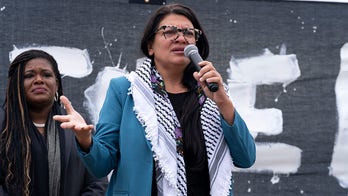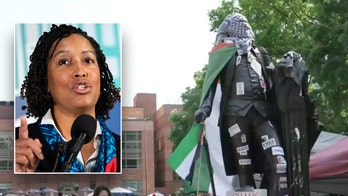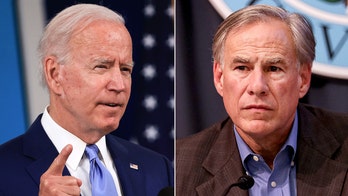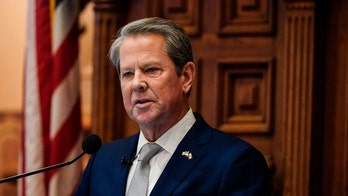Gov. Sununu: Biden has left the president vulnerable
Former New Hampshire governor sounds off on VP debate
The raging debate on Capitol Hill over the Libya consulate attack has put a spotlight on the State Department's security spending, with some questioning whether money spent on electric cars and green-embassy programs could have been put to better use.
Federal contract records show the department in May spent $108,000 on Chevy Volt charging stations for the American Embassy in Vienna. It apparently was part of a broader program to make diplomatic posts more energy efficient, and the upgrades and electric cars were on full display at a gala a few days after that contract was signed.
But Rep. Mike Kelly, R-Pa., is scrutinizing the spending in light of concerns that the State Department turned down requests for more security in eastern Libya in the run-up to the Sept. 11 attack that killed four Americans.
"There's something wrong," Kelly told FoxNews.com.
Though it's unclear how easily the department could have freed up money from its green-energy program to beef up security, Kelly claimed officials would have "great flexibility" over how the budget is spent.
"We're got lives on the line. Doesn't that trump anything else that could possibly be going on?" Kelly said. "It's all about priorities."
Records show another $47,500 was spent in March on a Chevy Volt for the American Embassy in Oslo. That's more than the usual $39,000 that 2013 Volts are going for -- and certainly doesn't include the $7,500 tax credit individuals can reap for electric car purchases.
Democrats, though, suggest Republicans are the ones undermining security at U.S. embassies with sweeping budget cuts. As Republicans hammered the Obama administration during a House hearing Wednesday on the Libya attack, Democratic lawmakers claimed it was Republicans who had their priorities mixed up.
"The fact is that since 2011, the House has cut embassy security by hundreds of millions of dollars, below the amounts requested by the president," said Rep. Elijah Cummings, D-Md., top Democrat on the House Oversight and Government Reform Committee.
Cummings called on Republicans to join him in calling for a supplemental funding bill to "restore funding for embassy security," suggesting lawmakers do so by closing tax breaks for oil companies.
While the GOP-led House has pushed to reduce the budget for embassy security, construction and maintenance, Congress, which included support from Democrats, ultimately agreed on a $1.54 billion budget. That's more than the $1.43 million committee Republicans recommended, though 5 percent less than the 2011 figure. The budget was $1.63 billion in fiscal 2011 and $1.82 billion in fiscal 2010.
However, the U.S. government is also trying to deal with severe budget constraints at a time of trillion-dollar deficits, and that last budget was passed on a bipartisan vote -- by a hair, more Democrats ended up supporting it than Republicans in the House. Cummings was among the 149 Democrats who voted yes, along with 147 Republicans.
"I might note that the funding that is currently enjoyed by the State Department was voted bipartisan," Rep. Darrell Issa, R-Calif., chairman of the House oversight committee, said Wednesday in response to complaints about the budget levels.
Kelly argues that the problem isn't the level of funding but how the money that's budgeted is being spent.
The pressure on the State Department, and other agencies, to carefully prioritize spending may be even greater come next year. The White House estimates that under automatic spending cuts -- which members of both parties enacted and which Washington has not yet figured out how to avert - that embassy budget will face a $129 million cut.
State Department officials suggested at Wednesday's hearing that granting additional security might not have protected American diplomats in Benghazi. They noted, for instance, that a 16-member security team whose assignment ended shortly before the attack was stationed in Tripoli, not Benghazi.
But former security officers expressed frustration at the hearing over their efforts to get more staffing.
"We were fighting a losing battle. We couldn't even keep what we had," said Lt. Col. Andrew Wood, former head of that 16-member U.S. military team.
A representative with the State Department did not return a request for comment on the electric-car equipment purchases.





